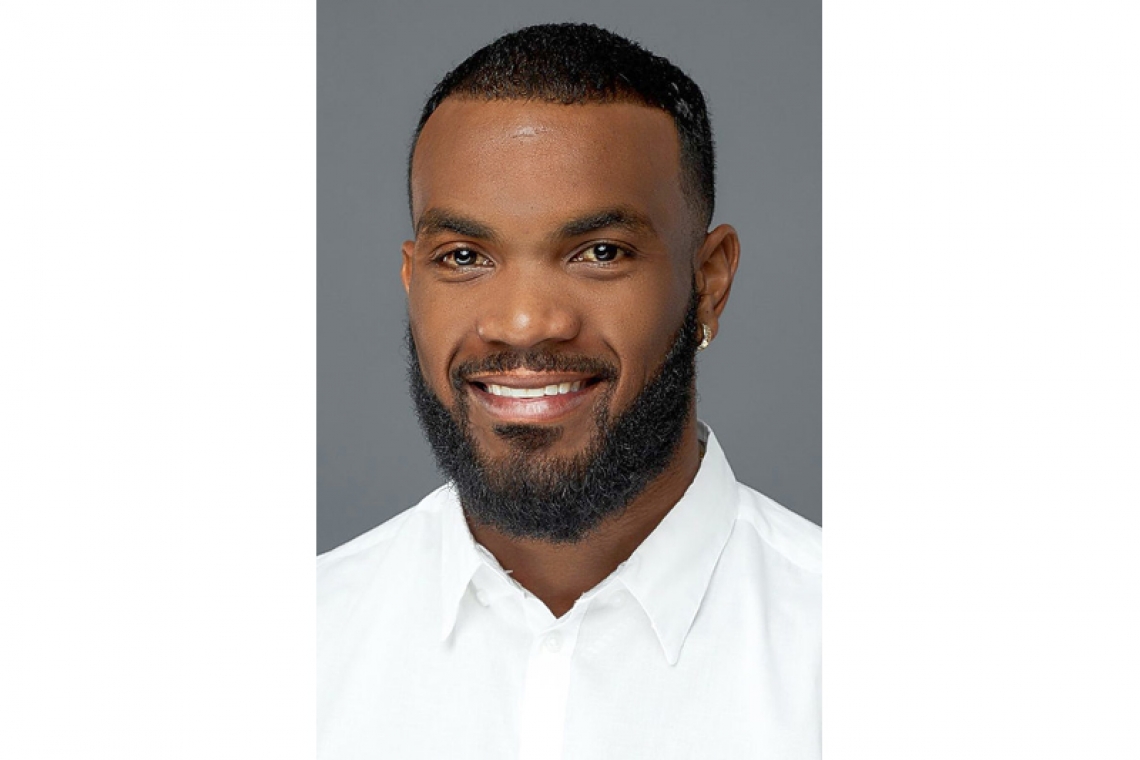MP Raeyhon Peterson
PHILIPSBURG--Party For Progress (PFP) Member of Parliament (MP) Raeyhon Peterson minced no words in expressing his position on the screening of ministers during a public meeting of Parliament on Friday on the same subject.
According to Peterson, integrity is a must and cannot be in doubt.
“You must have integrity, especially if you are going to be trusted to make executive decisions that are in the best interest of this country,” he said. “In light of the principle of good governance, a screening process falls in line with what the principle is trying to protect, which is the people. If somebody is going to be allowed to manage government funds in the manner that ministers do according to the law, a screening is definitely necessary.
“To me it’s pretty clear. If you have nothing to hide, then you should have no issue being screened.”
He said there is no legal or moral principle to defend by refusing to be screened for a head position in the executive branch of government. “As Minister, you have to be held accountable for your actions, by law.”
It is important, he noted, that the separation is made between the executive branch and the legislative branch of the Trias Politica of a democracy.
“The people of St. Maarten go to the election polls to vote for their representatives in Parliament, not for who is to be placed in the executive branch. These are two totally different positions that need to remain separated.
“If we look into the past, we as citizens of St. Maarten cannot deny that our ministers have done some questionable acts in the past. Questionable contracts being given out, questionable land deals being made and questionable permits being issued. Nepotism plays a big role in this problematic. We have a culture that defends this, to my opinion, misbehaviour by the executive branch.”
Instead of admitting the truth that some people are not meant to be in a position to take executive decisions that affect the country, its finances, assets and integrity, persons have a tendency to defend this behaviour by looking at the past and justifying it, he said.
“How many times do we hear ‘where were the authorities when this past Minister did this a couple of years ago? If they did it in the past and nobody said anything, what’s the problem now?’” he said.
“And this is a major problem in our country. Wrongs in the past do not justify wrongs in the present and the future. If these are the kind of arguments we choose to listen to, then we are taking two steps back with every step we take forward. This cannot be in the best interest of the country, only in the best interest of the individuals in question.”
Peterson said the Netherlands believing that St. Maarten needs a stronger screening process is not a deciding factor for how the country chooses to deal with its screening procedure.
“And the argument that the Dutch are going to ‘have too much to say in our country’ is also a non-issue. It can only be an issue if the law does not stipulate that only local law enforcement can carry out the screening process.
“The most important thing that we need to take into consideration when establishing such a law is to have the process be as transparent as possible. If we safeguard this, then our autonomy is not at risk. It all depends on if we are willing to work together to reach a consensus for the citizens of St. Maarten, who deserve to be represented by people of Integrity.”
Peterson said the issue of screening has been a topic of discussion for quite some time and the lack of transparency in the process has been a major issue for St. Maarten.
“We have experienced questionable scenarios when it comes to our screening process.
“I remember a case where a proposed minister-candidate was issued a red flag due to her colleague at her job allegedly being under a criminal investigation, and months later, when she was already taken off the list of minister-candidates, it turned out that there was no investigation of the colleague in question going on,” he said noting that there are some far-reaching measures in the screening process that can have a negative impact on the entire screening process.
In seeking a solution, he said St. Maarten does not have to reinvent the wheel. Curaçao passed a national ordinance on the screening of minister-candidates in 2012. Aruba also sent in a proposal for a similar law in 2015.
“We as a Kingdom partner can look at our island-partners, being Curaçao and Aruba, within the Kingdom, to see how we can implement a similar law for St. Maarten. We can even look into the possibility of making this law in a joint venture with the other islands within the Kingdom, as I understand that Curaçao is currently looking into amending said law,” Peterson noted.
He said a process as important as screening should be regulated in a national ordinance, not a national decree.
“We are a young country and lack of legislation is a known fact. That is not an argument to not legislate what should be in the law. Transparency is key. If our island Kingdom partners can make this step, I do not understand why we can’t.”







